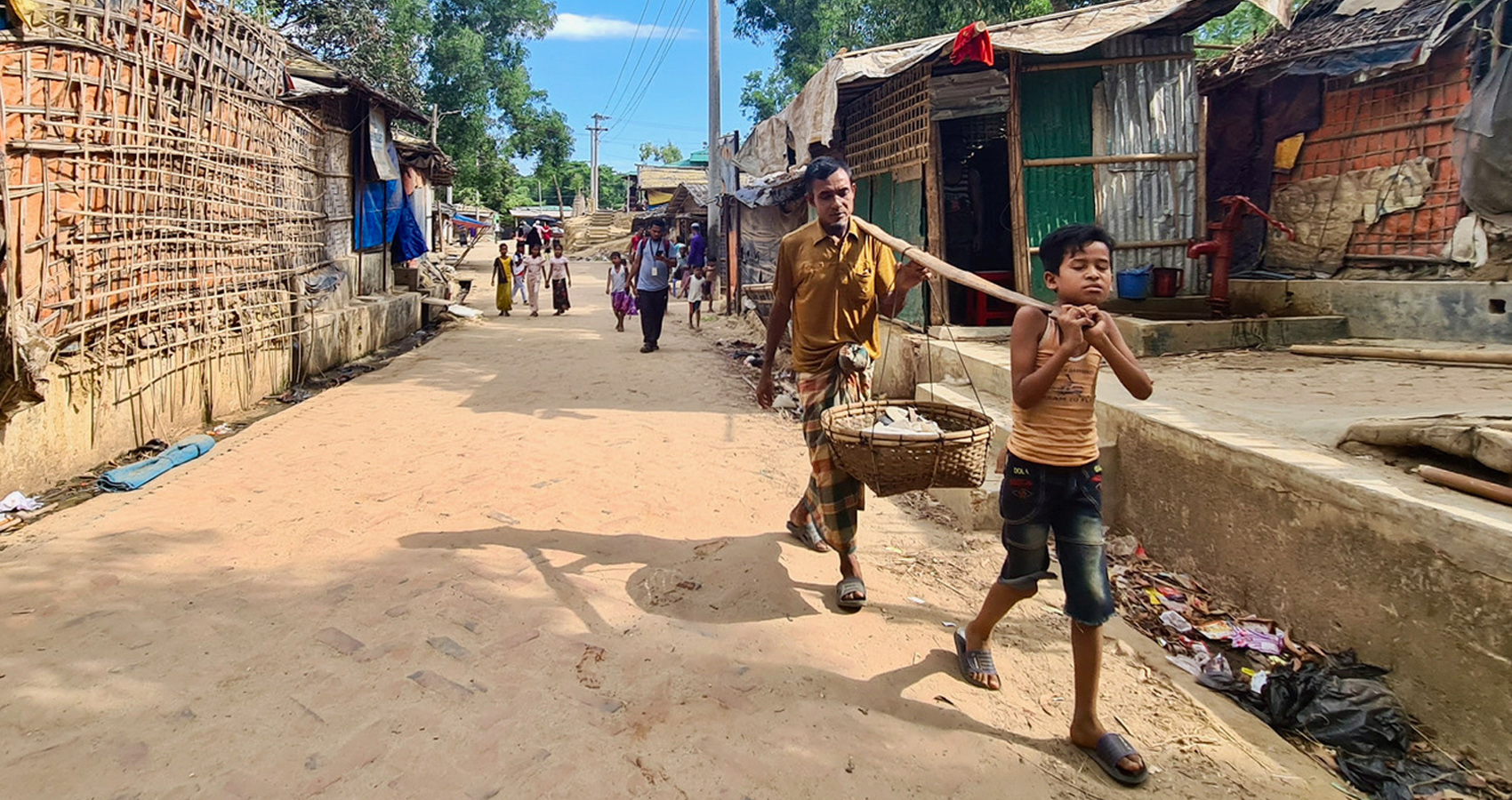Rakhine: Endless War and the Unresolved Rohingya Crisis
Bombings continue in Myanmar’s western state, long at the heart of tensions with the Muslim minority. The Arakan Army now administers much of the region, but the Rohingya issue remains unresolved. The community is still in the crosshairs of the three armed groups vying for territorial control. Bangladesh, in seeking China's support, proposed the creation of an independent state, but the initiative has made no progress.
Yangon (AsiaNews) – The Burmese military junta continues to bomb civilian populations across Myanmar. In addition to attacks on a school where at least 25 people—mostly children—were killed, military aircraft also targeted the village of Tun Yawai in Rathedaung District, killing several civilians. “Twelve houses were completely destroyed. Thirteen bodies have been recovered, and over twenty people were injured. It is feared more victims remain trapped under the rubble, so the death toll could rise,” said a spokesperson for the Arakan Army (AA), the region's main ethnic militia.
Despite the humanitarian crisis caused by the recent earthquake, clashes continue, particularly in Kyaukphyu—at the heart of Rakhine State and a strategically important area for the junta’s interests. According to the AA, since the earthquake struck on 28 March, over 500 attacks have taken place in Rakhine alone. The Arakan Army continues to advance, targeting not only junta troops but also Rohingya civilians.
The Rohingya are not among the 135 ethnic groups officially recognised under Myanmar’s national legislation, making them effectively stateless. Historically, they have been concentrated in Rakhine State, particularly along the border with Bangladesh. In the broader Arakan region (the name used before the junta renamed it Rakhine in 1989), it is estimated that this Muslim minority comprises only about 20% of the population. The majority—over 75%—are Rakhine or Arakanese Buddhists.
Currently, three armed groups are battling in the region: the Arakan Army (AA), the junta’s military forces (Tatmadaw), and the Arakan Rohingya Salvation Army (ARSA), a group labelled terrorist that claims to defend the Rohingya.
During the civil war that followed the military coup in February 2021, the junta exploited ethnic divisions within the region to weaken the AA and retain power. It has been accused of facilitating ARSA’s return to Rakhine in an attempt to counter the AA’s rise—part of a classic “divide and rule” strategy. Both ARSA and Tatmadaw have forcibly recruited members of the minority. The United Nations reports that nearly 2,000 young Rohingya refugees have been abducted from camps in Cox’s Bazar, Bangladesh—the largest refugee settlement in the world—and forced to join the junta’s ranks.
Since the beginning of 2024, the junta has lost control of most of Rakhine. The AA now holds approximately 80% of the state—14 out of 17 townships—leaving the junta in control of only Sittwe (the capital), Kyaukphyu (a strategic port with Chinese interests), and the island of Manaung.
The region is administered by the United League of Arakan (ULA), the AA’s political wing, which has stated its goal is to restore peace through inclusive governance. However, local news outlets continue to report numerous violent incidents committed by both the AA and ARSA, often targeting the Rohingya minority.
At the end of April, Bangladesh sought to engage China in a diplomatic resolution to the crisis. Dhaka is especially concerned that the ongoing conflict may further fuel radicalisation, which already threatens to destabilise the country.
Last month, Jamaat-e-Islami, Bangladesh’s main Islamist party, proposed the creation of an independent Rohingya state in the Arakan/Rakhine region. The idea was floated during a closed-door meeting with a Chinese Communist Party delegation at a Dhaka hotel. The effort proved fruitless: the Chinese delegation offered no comment, and the Burmese junta outright rejected the proposal, deeming it a threat to national sovereignty. The generals also reiterated that a repatriation mechanism already exists for “Bengali” refugees (a term used by the Burmese authorities to label the Rohingya as foreigners), harshly criticising China's involvement in the matter. China’s mediation is strategic—it maintains close political ties with both Naypyidaw and Dhaka, and it has commercial and infrastructure interests to safeguard in Rakhine.
According to regional conflict expert Ashfaque Ronnie, the idea of an independent state does not resolve the crisis, as it fails to address the root causes—deep-seated ethnic division and discrimination. He believes a sustainable solution must emerge from within the local communities, albeit with the support of international mediators. As reported by The Diplomat, hope that the new administration will genuinely pursue this path exists only in areas where the Rohingya presence is minimal.
12/02/2016 15:14







.png)










